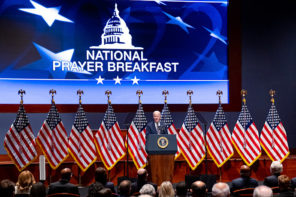Rob Boston of Americans United for Separation for Church and State has an interesting article about a subject that, at first glance, may not seem like a First Amendment issue: school vouchers.
Apparently, as state legislatures across the country struggle to balance budgets on in-the-tank tax revenues, one of their most pressing issues this year is developing back-door voucher programs to give millions of dollars to students to attend private schools.
The push in Florida comes even though one existing private school subsidy has been found sorely wanting. The Florida Corporate Income Tax Credit Scholarship Program has poured nearly $500 million in tax revenue into private schools since 2002, yet only limited oversight mechanisms have been put in place to ensure that students are learning, reported the Jacksonville Times-Union.
Under the program, companies can choose to divert up to 75 percent of the corporate income tax they owe into non-profit groups that distribute vouchers to pay for private school tuition. Critics say it is essentially a back-door voucher plan.
As it turns out, many of the schools that would most benefit from these programs happen to be religious institutions. Even more concerning, those schools may also discriminate against students for a litany of reasons, including for sexual orientation.
Boston writes that supporters of church-state separation and public education are gearing up for a fight.
In a recent letter to the Daytona Beach News-Journal, Rabbi Merrill Shapiro, president of the Board of Trustees of Americans United for Separation of Church and State, wrote, “Who should make the decision about how much money any citizen contributes to religious groups—that citizen, or the government? Most Americans would have no trouble answering that question. All of us want the right to freely make our own choices about religion. This voucher program will undercut that right by requiring taxpayer support for religious schools.”
In addition to Florida, 14 states have introduced voucher legislation and more are expected to follow. It’s strange that as states struggle with their worst fiscal crisis since the Great Depression, lawmakers are proposing legislation that would drain much-needed money from public schools. As we march into the 2011-12 legislation sessions, this is definitely an issue that merits close watch.




